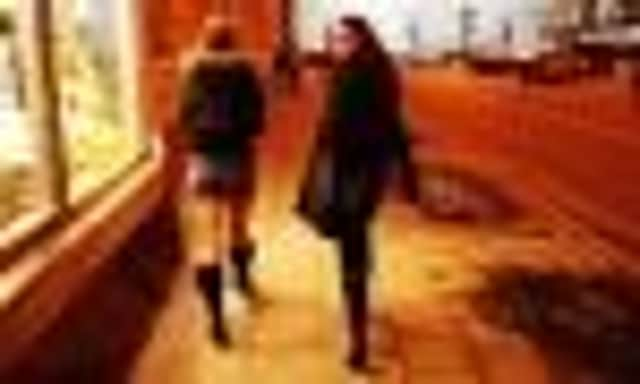Thousands trafficked to the UK and forced to work for a pittance


The workers are forced to put in long hours with little food while living in squalid conditions, the UK Human Trafficking Centre (UKHTC) said, and may be employed by firms unaware of the abuse.
UKHTC has launched a campaign with Crimestoppers and the Association of Chief Police Officers (ACPO) to highlight the plight of the workers.
Advertisement
Hide AdAdvertisement
Hide AdJames Behan, head of operations for UKHTC, said: “It’s probably one of the least understood areas of human trafficking.
“If you asked a member of the public they would probably understand sexual exploitation and child trafficking, but when it comes to labour trafficking it’s a hidden crime.
“The idea is to raise the awareness of the general public as they’re going about their daily business to see the signs.
“It can range from a 15-year-old being made to work in a field to a middle-aged man who has fallen on hard times and become alcohol-dependent. It isn’t one specific group, one nationality, one age group, it’s very encompassing.”
More than 1,000 victims of trafficking for forced labour have been referred to the centre since 2009, but Mr Behan said this could be “the tip of the iceberg”, and he believes there are potentially “many more”.
The workers are typically used in low-paid jobs where they have to work for long hours, have to live in poor-quality, cramped housing and can suffer malnutrition because they are fed so little.
Jobs include being made to work in private houses as well as the hospitality, farming, manufacturing and construction industries.
Mr Behan said: “The people live in difficult conditions. Quite often they will share beds. It’s very poor-quality housing and there’s no real downtime because they have to work long hours. They have no possessions and no freedom.”
Advertisement
Hide AdAdvertisement
Hide AdBritish nationals have also fallen prey to forced labour. Recently, there have been high-profile cases where traveller families have been convicted of keeping men as modern-day slaves.
Mr Behan said: “A professor specialising in malnutrition had to come in and advise how to feed them, because it was similar to a concentration camp victim.
“They had scurvy, broken bones that had not been treated and had no teeth left.”
Workers brought in from abroad can be trapped because they are here illegally, because the traffickers threaten their family members or because they owe the gang a debt for bringing them to Britain.
Some businesses will not realise their staff are being exploited and are only receiving a fraction of their wages.
“There are times when the individual company won’t realise that the money they are paying isn’t going to the victims, but going to someone else,” Mr Behan said.
Crimestoppers said that human trafficking across the world nets criminal gangs about £20 billion each year, making it one of the most high-value crimes in the world, second only to the drugs trade.